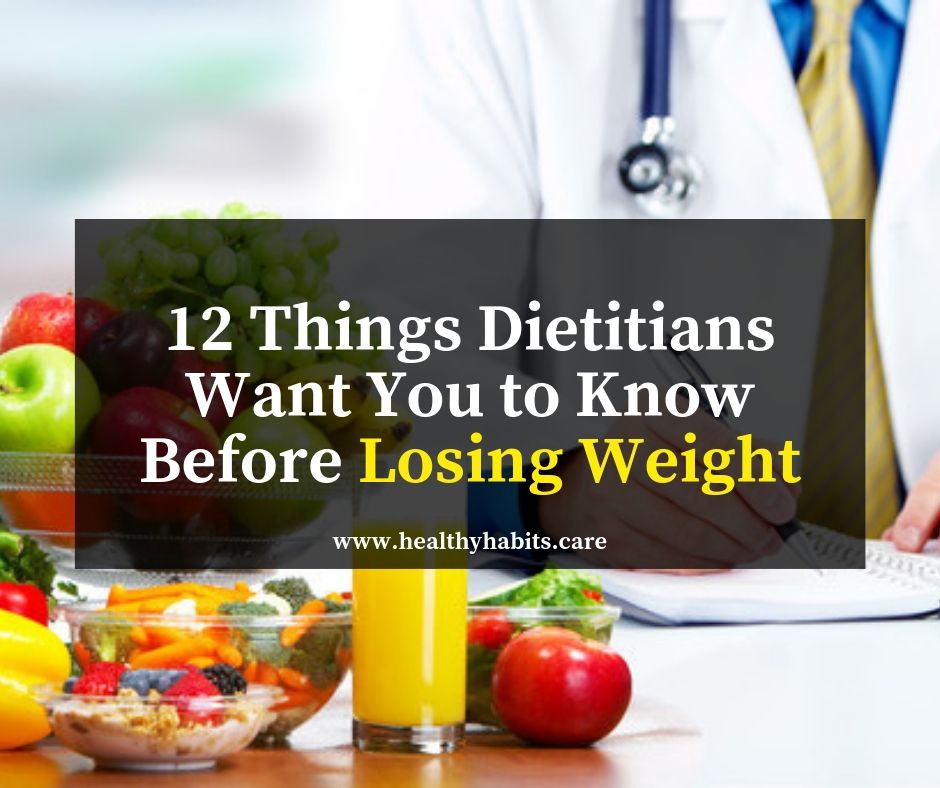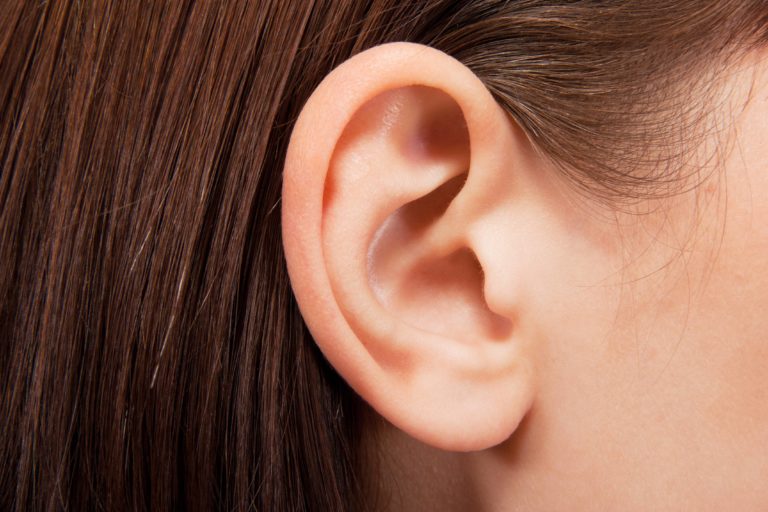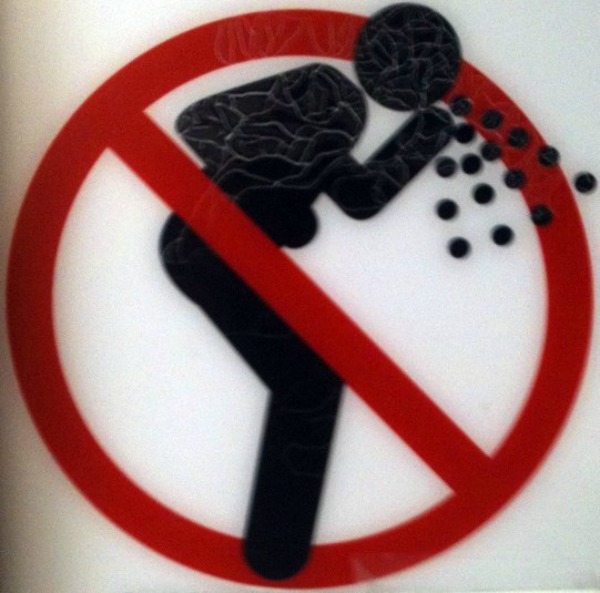
No matter how much you educate yourself, how many hours you log in the gym, and how much you meal prep, losing weight is tough. Even if you’ve found weight-loss success in the past, it’s totally normal to hit a plateau. But don’t be discouraged. You may need a little help from the pros when it comes to sticking to a healthy weight-loss diet plan.
That’s why we’ve consulted some top dietitians and nutritionists to reveal their top tips for losing weight and keeping it off. If you feel stuck in your diet or aren’t sure what the next steps to take are, take it from these experts who help clients every day with the same struggles.
Weight loss is a journey.
“Most people live their lives trying to meet specific health goals and get down on themselves when they hit a roadblock or experience a setback, often throwing in the towel altogether. I wish everyone knew that achieving health and wellness is a journey, not a destination. Roadblocks and setbacks are part of the process and should be used as learning experiences, not excuses to give up.” —Kara Lydon, RD, LDN, RYT, author of Nourish Your Namaste
All sugars aren’t created equal.
“All sugar isn’t created equal. Sugar is sugar, yes, but some sugars are worse than others. Sugars you get from fruits are more natural and also come packed with important things like vitamins, minerals, and nutrients. Added sugars like high fructose corn syrup and table sugar are the ones to skip, along with artificial sweeteners.” —Isabel Smith, MS, RD, CDN, registered dietitian and founder of Isabel Smith Nutrition
Gluten-free doesn’t equal healthy.
“I wish people knew that gluten-free foods aren’t all automatically healthy. People often lose weight and feel better on a gluten-free diet, but it’s usually not because of lack of gluten. It’s because they’re paying attention to their food choices and eating more real foods and less simple carbs. Gluten-free labeled packaged foods actually tend to have more calories and extra fat or sugar for added flavor.” —Torey Armul, MS, RD, CSSD, LDN, spokesperson for the Academy of Nutrition and Dietetics
There are no “bad” foods.
“I wish people knew that there isn’t one bad food or one bad nutrient. First, fat was blamed for our country’s obesity epidemic, then it was carbs, now it’s sugar. We need to shift our focus to eating real, whole foods like fruits, vegetables, lean proteins, and whole grains—foods that have a ton of nutritional value and taste delicious—instead of fearing entire food groups and creating an unhealthy ‘good’ versus ‘bad’ relationship with food. All foods can fit into a healthy diet.” —Kristen Carlucci Haase RD-N
You can’t outrun a bad diet.
“Many people think that they can eat whatever they want as long as they work out. But the truth is, if you are looking to lose or maintain your weight, what you put in your body is significantly more important than hitting the gym. Exercise is important to keep your body healthy, but just because you work out for an hour or more per day, it doesn’t give you the liberty to eat whatever you want!” —Ilyse Schapiro, MS, RDN, Co-Author of Should I Scoop out My Bagel
You can’t be addicted to carbs.
“A pet peeve of mine is hearing about how certain people are ‘addicted to carbs.’ I would love to scream across America that carbs are not, in fact, an addictive substance. By telling yourself that they are, you are not taking responsibility for yourself in terms of your food choices. You’re also creating a story about food that is untrue.” —Kristin Reisinger, MS, RD, CSSD, and founder and owner of IronPlate Studios
Wine is only healthy in moderation.
“Yes, wine is good for you, but only in moderation. That’s one 5-ounce glass of wine a day for women, two for men. Restaurants and bars commonly pour glasses that surpass that amount, so if you indulge in two or more glasses, you’re likely going to drink more than half a bottle. Most people don’t know—or don’t want to know—that wine and other alcoholic drinks are associated with breast cancer incidence. But it’s a truth that shouldn’t be ignored.” —Christine M. Palumbo, MBA, RDN, FAND
Carbohydrates aren’t all bad.
“I wish people knew that carbohydrates aren’t bad. It’s the type of carbs that count. Opt for complex carbohydrates with fiber, like fruits, veggies, and whole grains, and limit simple carbs, like table sugar, baked goods, candy, and white grains and breads.” —Torey Armul, MS, RD, CSSD, LDN, spokesperson for the Academy of Nutrition and Dietetics
You should do what works for you.
“I wish people knew that there is no one-size-fits-all diet that works for everyone. Individuals have different food preferences, dining habits, schedules, body types, past experiences, and obstacles. Stop falling for restrictive diet plans, America! Start by changing one simple habit and build from there.” —Stephanie Brookshier, RDN, ACSM-CPT
Nutrition panels don’t tell the whole story.
“The numbers on the nutrition panel aren’t the most important part of a food product. You need to look at the ingredient list, too. If there are ingredients you cannot pronounce or if you see anything you think may not be a natural ingredient, put the product back on the shelf.” —Isabel Smith, MS, RD, CDN, registered dietitian and founder of Isabel Smith Nutrition
Sleep matters.
“Contrary to the idea that most of us grew up with, sleep is not a waste of time. In fact, it’s a valuable use of your time and should be prioritized as part of your overall healthy lifestyle. Adequate amounts of quality sleep set the stage for good diet and exercise decisions during your waking hours.” —Christine M. Palumbo, MBA, RDN, FAND
You don’t need to obsess about portion sizes.
“Too many people are still obsessing over portion sizes and calories, which is totally old school! Instead, trust your body to tell you when to eat and when to stop. Is that doughnut in the break room calling your name because you’re actually hungry? Or are you using it to relieve boredom or stress? Think before you eat and stop before you feel full. Leaving food on your plate or saving it for later is not a crime!” —Stephanie Brookshier, RDN, ACSM-CPT

























